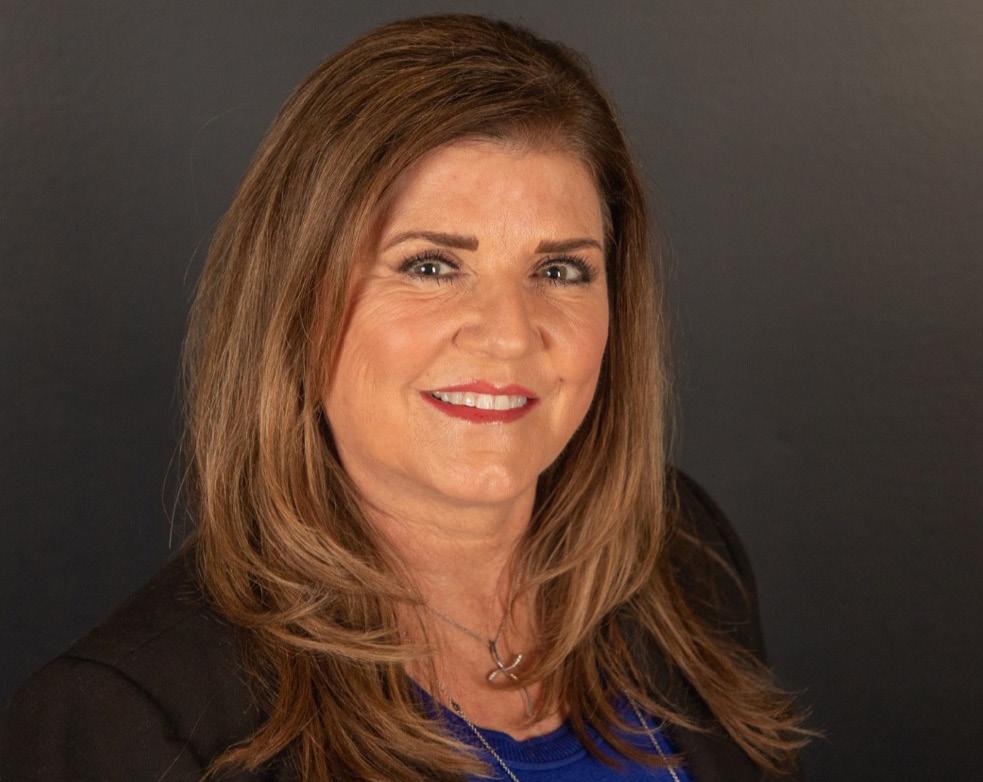
3 minute read
How Workforce Development became a Strategic Priority
Brief History: Workforce development showed up on the Chamber’s radar in 2013 when the NWA Council began its Employer Retention and Expansion Survey program. Chambers from across the region interviewed businesses to learn about successes, challenges, and how we can help.
• A lack of skilled labor, specifically in the manufacturing sector, quickly surfaced as an issue of concern and conversations began on how to fix it. Collaborations began on legislative action, school curriculums, and upskilling existing workers to create talent pipelines for major industry.
RLC recognized a disconnect between skills being taught in classrooms and what employers needed to fill jobs. The Chamber, in our role as conveners, began connecting education with industry through Large Industry Council meetings, Advisory Councils, and the launch of our Kindergarten to Job (K2J) Connect program bringing educators and students from across the region together with local employers to showcase career pathways in various industries.
Opportunity revealed: What COVID showed us is that labor shortages across all sectors required the need for workforce development to become a top priority.
• We took this opportunity to pivot our efforts away from just manufacturing and include all sectors. Through talent pipeline fellowships, staff learned the importance of early career exposure and the need for more students to see viable career pathways.
Current work: Beginning in 2021, the Chamber expanded our efforts in workforce development and refocused on career exposure for students.
• Our partnerships expanded beyond Rogers Public Schools to include NWACC, NTI, U of A Global Campus, BIT, Upskill Arkansas, and ACT Workkeys (Career Readiness Solutions).
• We worked internally to tear down silos and bring workforce development into all aspects of the Chamber’s efforts, specifically Destination Rogers, Community Development, Marketing Communications, and Government Affairs.
K2J Connect brought educators together
to tour factories and learn specific skills needed for industries. We partnered with Rogers Public Schools to host career fairs. We featured monthly articles highlighting workforce education in the Chamber Voice of Business Newsletter to raise awareness. Momentum was beginning to build, and solutions were starting to come together, then COVID happened.
• Our focus shifted to showcasing viable career pathways that don’t require college degrees and incurring student debt.
Mission-work highlights:
• K2J Connect expanded to include students on tours and moved beyond factories and into medical, early childhood education, construction, hospitality, and finance fields.
• Draft Day NWA: We partnered with the Arkansas State Chamber to host Draft Day NWA which included 2,000 student participants and over 800 interviews for seniors.
• Mountie Mentors launched in 2023 showcasing career success in non-degree fields.
• The RLC LEAD (Leadership, Education, Advancement & Development) program expanded to include workforce development efforts for underserved and underrepresented students.
• Destination Rogers hosted Tourism Talk which featured a hospitality career fair for 300+ students.
• Build My Future saw over 800 students exposed to construction field jobs.
• Career/Job Fairs: We saw over 650 students participate in the Rogers New Tech Career Fair. Local schools are now bringing students to RLC’s NWA Job Fairs to showcase careers and get jobs.
Bottom Line: In total, over 4,000 students will receive career exposure opportunities in 2023.
Strategic communications: Storytelling to raise awareness continues to be a tool we use to grow and expand our workforce offerings. Utilizing Chamber communication channels like the Voice of Business Newsletter, Voice of Business Podcast, Mission Minute videos, and social media we spread the word about the importance of workforce development and growing partnership opportunities.
What’s next: Chamber staff recently spoke with the Board of Directors to update them on our workforce efforts and to get feedback on what more work can be done. The meeting went into more detail than in this article on our programs and spoke on the importance of increasing our efforts to grow existing and create new talent pipelines. Board members offered their insights, asked detailed questions on our work, and provided suggestions on additional steps to take.
Dig deeper: The workforce challenges facing our region and nation did not develop overnight and will take years to fully overcome. The Rogers Lowell Chamber is committed to addressing workforce development as a top priority as long as it remains a top issue for our members.
• If you are interested in learning more about our workforce development efforts or are interested in partnering, please reach out to Steve Cox at steve@rogerslowell.com.











